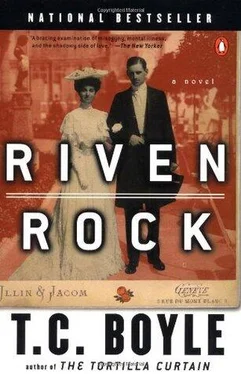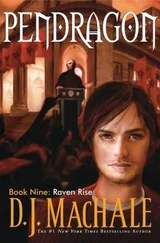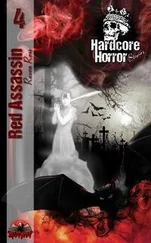T. Boyle - Riven Rock
Здесь есть возможность читать онлайн «T. Boyle - Riven Rock» весь текст электронной книги совершенно бесплатно (целиком полную версию без сокращений). В некоторых случаях можно слушать аудио, скачать через торрент в формате fb2 и присутствует краткое содержание. Год выпуска: 1999, Издательство: Penguin Books, Жанр: Современная проза, на английском языке. Описание произведения, (предисловие) а так же отзывы посетителей доступны на портале библиотеки ЛибКат.
- Название:Riven Rock
- Автор:
- Издательство:Penguin Books
- Жанр:
- Год:1999
- ISBN:нет данных
- Рейтинг книги:5 / 5. Голосов: 1
-
Избранное:Добавить в избранное
- Отзывы:
-
Ваша оценка:
- 100
- 1
- 2
- 3
- 4
- 5
Riven Rock: краткое содержание, описание и аннотация
Предлагаем к чтению аннотацию, описание, краткое содержание или предисловие (зависит от того, что написал сам автор книги «Riven Rock»). Если вы не нашли необходимую информацию о книге — напишите в комментариях, мы постараемся отыскать её.
Riven Rock — читать онлайн бесплатно полную книгу (весь текст) целиком
Ниже представлен текст книги, разбитый по страницам. Система сохранения места последней прочитанной страницы, позволяет с удобством читать онлайн бесплатно книгу «Riven Rock», без необходимости каждый раз заново искать на чём Вы остановились. Поставьте закладку, и сможете в любой момент перейти на страницу, на которой закончили чтение.
Интервал:
Закладка:
That was when O‘Kane saw the postbox, right there across the street, not twenty paces away. “I’ll just be a minute,” he said, feeling for the envelope in his pocket, and then he was out on the glistening street and smelling the rank wet insistent odor of the eucalyptus buttons crushed into the pavement. He crossed the street and dropped the envelope in the box and had turned to hustle back to the car when he saw the dog, pale brown with a white star on its chest, trembling and wet, raising the black shining carbuncle of its nose to the slit of the window — and there was Mr. McCormick’s hand, extended, the last bits of tuna salad and rye descending toward the dog’s yearning pink mouth. And that was all right, no problem, no trouble, no hurry, even the thunder of the train something to hold and consider on a mild wet close-hung afternoon away from the cage of Riven Rock that made you wonder half the time who was the prisoner and who the keeper.
Sure. But then O‘Kane watched the dog jerk suddenly back and away as the door flung itself violently open and Mr. McCormick’s left shoe appeared beneath it on the pavement, and then the other shoe, the creased legs of his pants, the door gaping now and Mr. McCormick half-in and half-out, turning briefly to flail his fists at the shadow of Nurse Gleason’s desperately clinging form. O’Kane broke for the car, but it was too late, Mr. McCormick out in the street with a wild look in his eye and his hat on the ground like a dead thing and the yellow slicker already flapping behind him. He was gone, running in the spastic ducking canter O‘Kane knew so well, elbows flying, his head hanging there above his shoulders like an afterthought, but what did he want — the dog? Yes, the dog, skittering away from him suddenly in the direction of the train, the gleaming steel back-whirling wheels and manufactured thunder, and “Here, doggie, here, pooch, come here, come here.”
O‘Kane gave it everything he had, no time to think of the danger or the consequences, intent only on that loping mad twisted form he’d followed one place or another for the better part of his life, wedded to it, inured, stuck fast, but his knee wouldn’t cooperate. Mr. McCormick was running flat-out, dipping and feinting to grab at the dog, past the line of cars now, staring faces, a man with a cigar, lady in a hat, right up to the crossguard — and then, without hesitating, a simple compression of the spine, heartbeat and a half, he was under it.
It was almost inevitable that the dog would die. A brown streak shooting through the gap of the grinding wheels, the cars rocking, the slowest train in the world, and here was the dog’s last and final moment in this time, no sound at all but the screech of the wheels, and when O‘Kane reached Mr. McCormick, there was one long stripe of blood painted down the front of him, from his sorrowful stricken eyes to the yellow waist of the rain slicker.
“Eddie,” he said, but he jerked his arm away when O‘Kane tried to take it, and the train was right there, as loud as the very end of everything, “Eddie, I want to die,” he said. “Eddie, let me die.”
That was a moment O‘Kane would remember for the rest of his life, the life he would spend breathing air and eating food and sharing the sofa with Mr. Stanley Robert McCormick, a life he had no flake of choice in, because he didn’t let Mr. McCormick die under those ratcheting wheels, already blooded, already released, but seized him in his arms and hugged him to him with a fierceness no force on earth could ever hope to break.
8. COME ON IN JACK
Katherine McCormick sat stiffly on one of the high-backed wooden benches of the Santa Barbara County Courthouse and studied the muraled walls with a vehemence of concentration that obliterated everything around her. Her clothes were flawless, her face neutral, her hair pinned up tightly beneath the brim of her hat. Her mother, looking sweet and determined, perched protectively on one side of her, and Jane on the other. Above all, she kept telling herself, she mustn’t show any emotion. These people were like hounds, a whole yammering pack of them, the world of men arrayed against her yet again — the jostling rude loudmouthed reporters, the twanging hayseed of a judge, the McCormicks and their hired guns and even Bentley, her old nemesis, looking on from the wings with a mocking grin. But this time she had Newton Baker on her side, and if there was any man in America with more presence in a courtroom or a bigger reputation, short of Clarence Darrow himself, she’d like to know it. This was a fight she wasn’t going to lose.
So she studied the murals as if she were in the Prado or the Rijksmuseum, and tried to control her breathing and the wild fluttering surges of her heart. The courthouse was newly built, a replacement for the old structure that had fallen victim to the earthquake, and it was a grand high-crowned edifice in an ersatz Moorish-Iberian style, with hand-painted tiles from Algeria, half a mile of wrought iron, a flurry of arches and broad stone steps and a white watchtower that would have made Don Quixote feel right at home. The murals had been rendered by a Dutch set designer more usually employed by Cecil B. DeMille, and there was no danger of mistaking him for the reincarnation of Rembrandt. The one Katherine was fixed on at the moment depicted a group of noble savages and their dog looking suitably impressed as a group of halberd-wielding Spaniards descended on them from a galleon glimpsed mistily in the distance. The legend beneath it read: “1542. Fifty years after Columbus Juan Rodriguez Cabrillo lands at Las Canoas with the Flag of Spain. ”
Well, it was a distraction. And she needed a distraction, because Oscar Lawler, the McCormicks’ attorney, backed by his three assistants and the resources of two Los Angeles law firms, was leading some miseducated, misguided and thoroughly self-satisfied fool of a physician through his paces vis-à-vis the dangers of endocrine treatment. “Moreover, in the cases of quiescent catatonia,” the doctor droned, “it is now generally recognized that they do not depend on thyroid, pituitary or gonadal insufficiency…. In some instances the administration of thyroid substances has been followed by an exacerbation of the symptoms and in more than one instance an actual acute frenzy has developed….” And blah, blah, blah. Why didn’t Newt stand up and object? Why didn’t he slam his fist down on the table and put an end to this charade? When would they ever get to cross-examination?
After lunch, it seemed. The doctor, a true by-the-rote man who spewed up everything the McCormicks had crammed down him, came back to court with a smear of mustard on his collar, and Newton Baker stood up and went to work on him. “Isn’t it true, Dr. Orbison,” Newt wanted to know, “that to expect a cure for a man in Mr. McCormick’s condition through purely psychoanalytical means is an exercise in futility? Especially when, as a number of your distinguished colleagues in the medical profession have testified in this court, he is clearly dyspituitary and could be immeasurably helped, if not even cured, by feedings of the extract of the thyroid gland?”
Dr. Orbison, the smear of mustard in evidence, denied it. He felt that the patient had improved markedly under Dr. Kempf’s regime and he reiterated that gland feeding was dangerous and irresponsible in a case like Mr. McCormick’s.
“But isn’t it the case, doctor, that Dr. Kempf’s ‘treatment’ consists in nothing more than telling dirty stories for two hours each day, and this under the cover of medical authority, which makes it all the more detrimental, not to say reprehensible, and has had the effect of arousing in the patient an antipathy toward women — and toward his wife in particular? ”
Читать дальшеИнтервал:
Закладка:
Похожие книги на «Riven Rock»
Представляем Вашему вниманию похожие книги на «Riven Rock» списком для выбора. Мы отобрали схожую по названию и смыслу литературу в надежде предоставить читателям больше вариантов отыскать новые, интересные, ещё непрочитанные произведения.
Обсуждение, отзывы о книге «Riven Rock» и просто собственные мнения читателей. Оставьте ваши комментарии, напишите, что Вы думаете о произведении, его смысле или главных героях. Укажите что конкретно понравилось, а что нет, и почему Вы так считаете.












